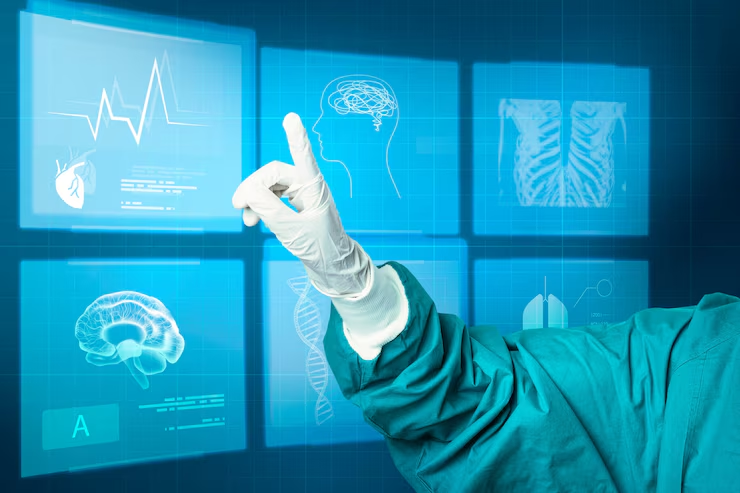
AI is currently taking the lead in changing the healthcare industry, and it is happening very quickly. The way we diagnose health problems and take care of patients is being affected by AI today. But what happens next? More important changes in healthcare are coming from AI, and they are coming sooner than most people expect.
Smarter Diagnoses, Faster Results
One of the top promises of AI is in helping with diagnostics. Currently, AI performs X-ray and MRI scans very well. In the coming years, AI is expected to help doctors discover health conditions much sooner than they do currently.
Cancers, heart problems, and even rare genetic disorders will be included. A fast diagnosis leads to prompt treatment, which could save a lot of lives on a yearly basis.
Personalised Treatment Plans
Every person is different. That said, why should everyone get the same treatment plan? AI will support the creation of personalised care plans. Based on a patient’s data, AI technology will give advice on the best medications, diets, and therapies. By using personalized plans, patients can feel better more quickly and safely.
As a matter of fact, companies such as Enzo Health are already making this vision a reality. As a result, their AI platform in Home Health Focus significantly reduces expenses, while patients get better care and healthcare teams improve how they work. In fact, you could try the service out for free to see the benefits of AI in healthcare.
AI and Predictive Healthcare
Think about being told about a health concern before you actually feel sick. With predictive healthcare, AI monitors your health data trends, such as changes in sleep, heart rate, and daily activities, and alerts both doctors and patients before the problem gets serious. Because of this, problems can be managed before they get worse.
Virtual Health Assistants and Remote Care
AI, as a matter of fact, will help provide healthcare to people living in remote areas. Virtual health assistants, supported by AI, help people by providing information, watching their symptoms, and ensuring patients follow their treatments with medication.
Although virtual health assistants won’t replace doctors, they will assist them by doing basic work. Because of this, doctors will be able to focus more on serious conditions.
Speeding Up Medical Research
AI can support scientists as well as patients in the medical field. Coming up with a new drug requires a lengthy process of testing. It can quickly review research papers, patients’ records, and clinical data using AI.
It is able to spot things in the data that doctors may not realize. Thanks to AI, it has become faster and easier to develop drugs and find solutions for patients.
Reducing Administrative Burdens
It is common for doctors to focus more on writing paperwork than interacting with patients. That’s changing with AI. Thanks to AI, doctors can now rely on tools to record details, complete forms, and summarise what patients say. This allows doctors to focus on the tasks that matter most: caring for patients.
Addressing Challenges with Care
Along with its advantages, AI also comes with obligations. Some real problems with AI are privacy, bias, and accuracy. Moving on, developers and those in healthcare should join forces to keep AI safe, fair, and reliable. Ethical standards and training AI with a variety of data will help build trust.
In conclusion, the future of healthcare with AI is already here and making a difference. Better diagnoses, improved treatments, and faster research are all being made possible by Artificial Intelligence today. The journey has just begun.
MindOwl Founder – My own struggles in life have led me to this path of understanding the human condition. I graduated with a bachelor’s degree in philosophy before completing a master’s degree in psychology at Regent’s University London. I then completed a postgraduate diploma in philosophical counselling before being trained in ACT (Acceptance and commitment therapy).
I’ve spent the last eight years studying the encounter of meditative practices with modern psychology.

